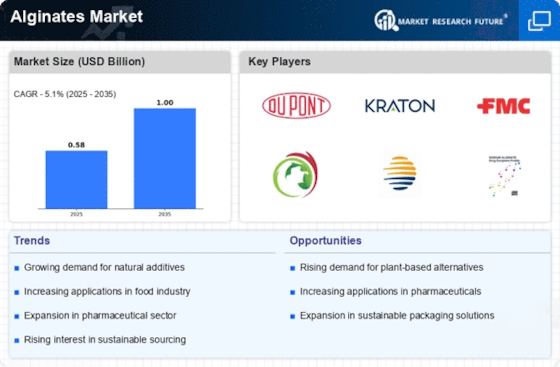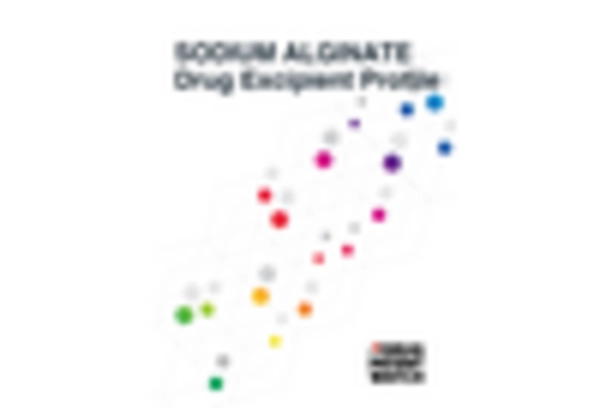Market Share
Alginates Market Share Analysis
In the dynamic landscape of the Alginates Market, the formulation of effective market share positioning strategies is pivotal for brands aiming to succeed in this versatile industry. A fundamental strategy involves continuous product innovation. Companies invest in research and development to enhance the properties and applications of alginates, which are widely used in industries such as food and beverages, pharmaceuticals, and textiles. By introducing new formulations that cater to specific needs and applications, brands can distinguish themselves and gain a competitive advantage, influencing market share positively.
Branding and marketing efforts play a critical role in shaping market share positioning within the Alginates Market. Successful brands focus on building a strong brand image that communicates reliability, quality, and a commitment to meeting the diverse requirements of industries. Marketing campaigns often highlight the multifunctional nature of alginates, emphasizing their role as thickeners, stabilizers, and gelling agents. Engaging in educational initiatives, providing technical support, and collaborating with industry experts contribute to building brand loyalty and awareness, impacting market share.
Pricing strategies are instrumental in market share positioning. Companies may adopt competitive pricing to appeal to a broad range of customers or premium pricing to position their alginates as high-quality, specialty ingredients. Striking a balance between cost-effectiveness and quality is crucial for attracting diverse market segments. Offering volume discounts, bulk purchase incentives, and flexible pricing structures are additional strategies that can help companies increase market share by catering to the varied needs of their customer base.
Distribution channels are key components of market share positioning within the Alginates Market. Brands aim to ensure widespread availability by strategically partnering with distributors, manufacturers, and retailers. The global reach of online platforms and e-commerce channels is also leveraged to expand accessibility. Developing a robust distribution network not only enhances a brand's market presence but also ensures that alginates are readily available to a diverse range of industries, including food, pharmaceuticals, cosmetics, and textiles.


















Leave a Comment